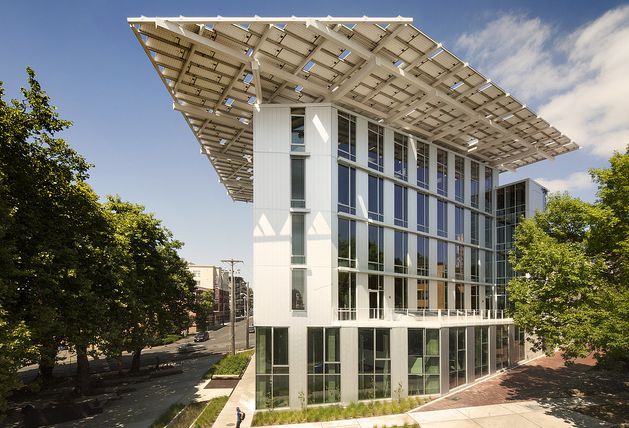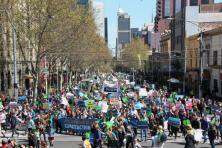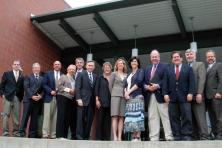A package of hugely important changes to Washington State codes are needed to make buildings more energy efficient and ready for solar and electric vehicle (EV) charging. Testifying before the Washington State Building Codes Council in Olympia on October 15, 2015, Climate Solutions called for these revisions:
- Washington State Energy Code Proposals E009, E012, E154, E029, E066, E069, E070, E122, E098, E114, and E121. Achieving carbon neutrality in buildings will require deep energy efficiency, and these proposed changes would codify the adoption of a range of efficient building systems, including ductless mini-split heat pumps, dedicated outdoor air systems, plug controls, and high-efficiency lighting.
- The 2015 International Residential Code proposal 15-047 and the 2015 International Building Code proposal 15-048, which are optional appendices that any jurisdiction within Washington State can independently adopt to prepare newly constructed buildings for the future installation of photovoltaic or solar water heating systems. Opportunities to encourage carbon-neutral energy technologies are increasing as the cost of photovoltaic technology is rapidly decreasing, and this suggested language would encourage more jurisdictions to adopt common solar-ready provisions.
- The 2015 International Building Code proposal 15-044, which would require new apartments, condominiums, and some commercial buildings to have electric capacity and conduit in place to serve EV charging. Greater EV adoption is essential for the K4C to meet its transportation commitment, and represents an important way to decarbonize our transportation system, which represents more than 40% of Washington State’s carbon emissions.
Since 2014, Climate Solutions’ New Energy Cities team has worked with the King County-Cities Climate Collaboration (K4C) on strategies to cut countywide carbon in half by 2030. The K4C includes King County and 13 cities and represents 1.5 million people and almost 20% of Washington State carbon emissions.
Based on New Energy Cities’ analysis, the elected officials of 12 K4C jurisdictions formally adopted Joint County-City Climate Commitments, which include a commitment to all new buildings being carbon-neutral by 2030, and a commitment to achieving 15% cleaner vehicles by 2030.
Local governments cannot meet these goals alone. Our analysis indicates that for the K4C to make new buildings carbon-neutral, the State of Washington must fully implement RCW 19.27A.160—achieving a 70% reduction in annual net energy consumption in new buildings in 2031 relative to 2006. To meet its transportation goal, the K4C would also need significant partnership with the State of Washington to promote the use of electric vehicles (EVs).
These proposed changes represent critical steps toward achieving the K4C’s commitments to carbon-neutral buildings and cleaner transportation. Without the state’s adoption of these code changes, the K4C will struggle to meet its carbon reduction goals.




